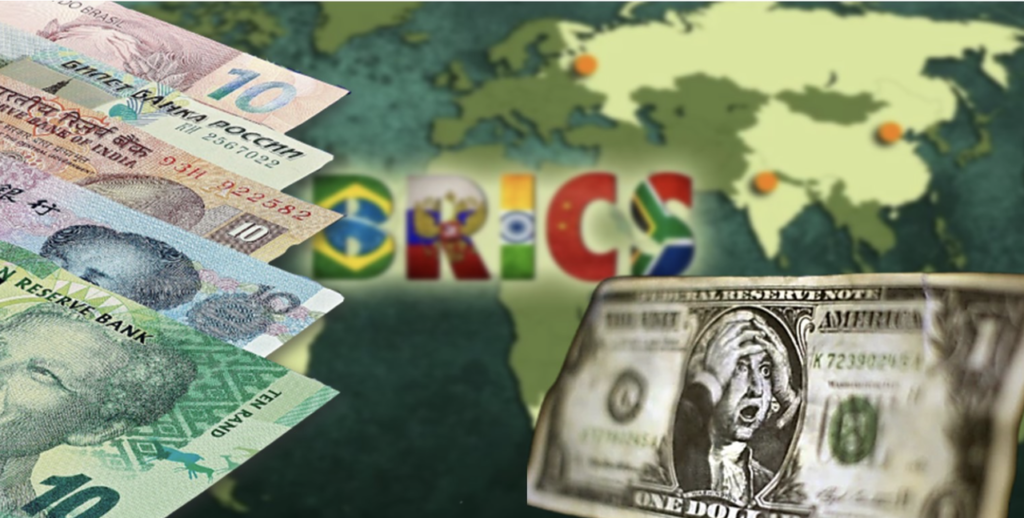Table of Contents
As BRICS—comprising Brazil, Russia, India, China, and South Africa—moves forward with ambitious financial reforms, the global economic landscape is poised for significant transformation. The alliance’s efforts to develop cryptocurrency exchanges, introduce a yuan-backed stablecoin, and eliminate trade regulations signal a concerted push to challenge the dominance of the U.S. dollar and euro in international finance. These initiatives, if successful, could reshape global trade, elevate the economic sovereignty of BRICS nations, and diminish the influence of Western financial institutions.
The BRICS Financial Revolution
The launch of BRICS-specific cryptocurrency exchanges in Russia, alongside a new stablecoin pegged to the Chinese yuan, highlights the bloc’s strategy to create alternative financial systems independent of Western control. These developments are more than just economic experiments; they are strategic tools designed to circumvent U.S. sanctions and reduce the reliance on the dollar in global transactions.
By removing trade regulations, BRICS “MOEX” is further simplifying intra-bloc commerce, paving the way for a more integrated and efficient market. This deregulation could enhance trade flows, strengthen economic ties, and make BRICS a more formidable collective force in global economics.
Implications for the Dollar and Euro
The rise of BRICS as an economic bloc with its own financial infrastructure could significantly weaken the U.S. dollar’s status as the world’s primary reserve currency. Currently, the dollar underpins much of global trade, but as BRICS nations increasingly conduct transactions in local currencies or digital assets, the demand for dollars could diminish.
Similarly, the euro might see reduced usage in international trade as BRICS members and their partners adopt new financial systems. This shift could lead to a decline in the influence of European financial institutions and make it more challenging for the European Union to project economic power on the global stage.
Global Economic Consequences
If BRICS continues on its current path, the next few years could witness the emergence of a multipolar financial system. In such a scenario, global trade would no longer be dominated by Western currencies but would instead involve a diverse set of financial instruments, including BRICS’ digital currencies and stablecoins. This could lead to a more balanced global economy, where emerging markets have greater autonomy and influence.
However, this shift could also destabilize existing financial systems, particularly if the transition away from the dollar and euro happens too quickly. The U.S. and Europe might face economic challenges as their currencies lose value and their influence in global trade diminishes. This could lead to a realignment of global alliances, with countries increasingly gravitating toward BRICS for trade and investment opportunities.
The Future of Global Trade
As BRICS expands its financial infrastructure, questions arise about who will be able to participate in this new economic order. Initially, access to BRICS’ cryptocurrency exchanges and digital currencies will likely be limited to member states and close trading partners. However, as the system proves its viability, other nations, particularly those frustrated by Western financial dominance, may seek to join or align with BRICS.
This could lead to a significant expansion of the BRICS bloc, both in terms of membership and influence. Countries in Asia, Africa, and Latin America might increasingly turn to BRICS as an alternative to Western-led financial institutions, leading to a gradual erosion of the dollar’s dominance in global trade.
Long-Term Outlook
If BRICS achieves its financial goals, the next decade could see a world where the U.S. and Europe no longer hold the same level of economic supremacy. The rise of a BRICS-centered financial system would redistribute global economic power, leading to a more multipolar world where no single currency or bloc holds disproportionate influence.
For the U.S. and Europe, this would necessitate significant adjustments. They would need to innovate and possibly collaborate more closely with emerging economies to maintain their relevance in global trade. The U.S. might also have to reconsider its reliance on economic sanctions as a tool of foreign policy, as more countries find ways to bypass the dollar-dominated financial system.

BRICS’ ongoing financial innovations could mark the beginning of a new era in global economics. By reducing dependency on the U.S. dollar and euro, and promoting financial sovereignty among emerging economies, BRICS has the potential to reshape the world order. While this transition presents challenges, it also offers opportunities for a more equitable and balanced global economy. As the world watches these developments unfold, the coming years will be crucial in determining the future of global finance and the balance of economic power.




One thought on “BRICS’ Expanding Influence: The Future of Global Finance and the Dollar’s Decline”